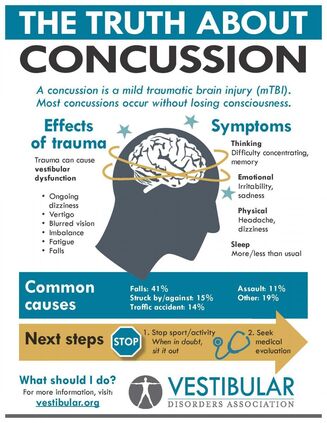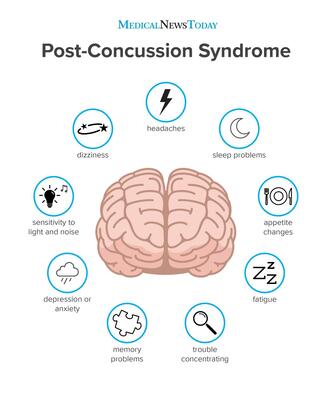IF YOU OR A LOVED ONE HAS BEEN AFFECTED BY HEAD INJURY PLEASE GIVE OUR OFFICE A CALL!
No matter what you call it, a head injury is a serious problem! It affects our vision, our behavior, our ability to read and sustain focus. Traditional medical providers are available to assist in the diagnosis of severe injuries using imaging such as MRI and CT scans, as well as assisting through medication and rehabilitation referrals to neurologists as well as physical & occupational therapists. Alternate care providers such as chiropractors can assist with adjustments to neck and back that may give relief. Since vision accounts for over 80% of our neuro input from all our senses it is obviously greatly affected and I have dedicated much of my practice to diagnosing and treating visual consequences of head injuries.
Concussion or mild traumatic brain injury has many visual consequences that are not addressed by traditional medicine. As far back as the Napoleonic War there have been references to reduced convergence of the eyes when trying to look at near targets following head injury. Jerky eye movements are also common, and a resulting head tilt may result if the injury is severe enough. Most patients that are referred to my office would be considered post Concussion and “mild TBI” since they are still able to function… although with great distress. I use retinal imaging to rule out any retinal swelling/edema and the resulting thinning of the macula region which may follow serious head trauma. Visual fields are taken as well, using both the standard and the more specialized “kinetic” protocol. I often use external photos to show any resulting cranial nerve palsies that may involve eyelids and pupils. Electrophysiology is the most essential technology I use and it has been called the only objective means of diagnosing mild TBI or Concussion. This treatment modality is the highlight of the Neuro-Optometric Rehabilitation Association (NORA) approach to vision therapy.
Once an initial diagnosis has been made I offer a highly specialized vision therapy program to help stimulate the damaged pathways in our brain. The eyes have been called “The window to the soul” but it is more appropriate to call them the window to our brain! Through our eyes we can stimulate various cranial nerves and even regions of our midbrain and visual cortex!

